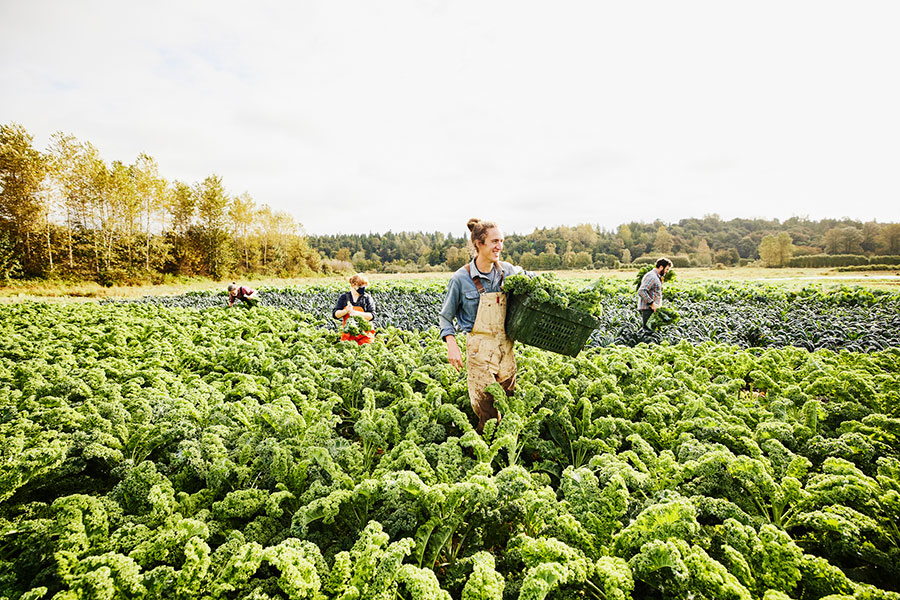How is organic farming more sustainable?
Growing organic plants is great for the environment because it does not pollute, increases soil fertility, reduces soil erosion, and protects wildlife.
In this way, it is ensured that the land can be used for generations to come without depleting the natural resources of the area.
One of the characteristics of organic farming is the cultivation of naturally hardier crops that can guarantee a reliable food supply.
Organic standards mean that farm workers and people who live in the area are not exposed to dangerous chemicals, which helps their health. That is also a key part of sustainability.
How does organic agriculture support wildlife and biodiversity?
Synthetic pesticides, herbicides, and other chemicals not only kill unwanted plants (weeds) or insects, but they kill a number of species that are important for balance in nature.
The species that shows the devastating effects of some industrial pesticides are bees.
When bees die, our entire food supply will collapse because bees are the main pollinators that guarantee successful harvests. However, it is not just about bees.
Organic farming also protects thousands of other species of insects, hedgehogs, birds, bats, frogs, and fish. It does not poison them or their environment.
Another important factor is that organic agriculture supports wildlife by maintaining hedges, ponds, and forests.
Synthetic fertilizers can pollute streams and ponds, disrupting the entire ecosystem and causing problems like algal blooms.
When that happens, the algae reproduce at a rapid rate, covering entire surfaces of the water and suffocating the fish that live there.
This simply does not happen with organic farming! But that is not all.
By avoiding GMOs, organic farming also protects local species from the introduction of foreign genes into their populations.
It is true that some transgenic plants are safe, but we do not yet have enough data to be sure of the long-term effects of transgenics on native species and the environment.
If you are enjoying this article, please read these articles below:

